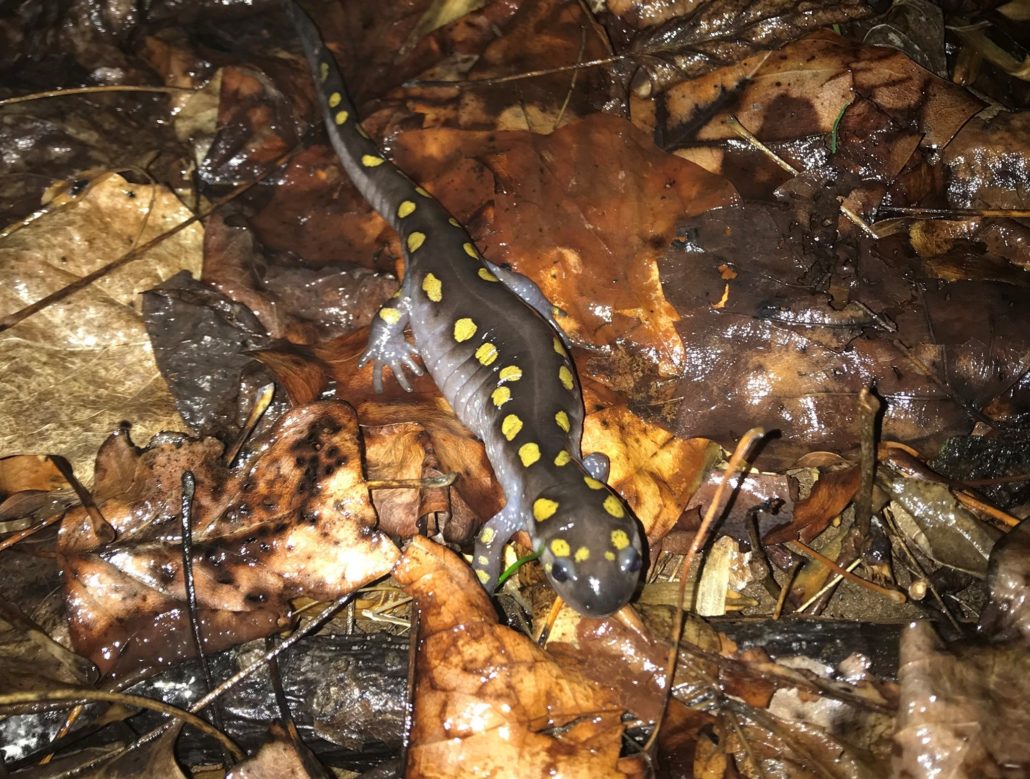New Study Examines How Urbanization Is Negatively Impacting Spotted Salamanders
Land management practices can help protect salamanders and other amphibians
 Warrenton, Virginia | February 1, 2021
Warrenton, Virginia | February 1, 2021
Increasing urbanization is threatening Spotted Salamanders and other amphibians, according to a newly released report from the Clifton Institute. Spotted Salamanders live in deciduous forests and rely on vernal pool habitats for breeding. Human activity such as urbanization is adversely impacting these key Spotted Salamander habitats in the following ways:
- Deforestation decreases the amount of habitat available to Spotted Salamanders.
- Forest fragmentation cuts off Spotted Salamander populations from each other, leading to inbreeding.
- Roads crossing through Spotted Salamander habitat make them vulnerable to vehicle traffic.
- Spotted Salamanders absorb chemicals through their skin more easily than other animals, making them especially vulnerable to pollutants and changes in water acidity.
“Spotted Salamanders are a special part of our local ecosystem. Unfortunately, it can be difficult for them to find places to breed in areas that are too developed,” said Eleanor Harris, managing director of the Clifton Institute. “The good news is that there are a few simple actions we can all take to create and protect their habitat so that Spotted Salamanders can continue to find a home in Northern Virginia.”
The study finds that once 30 percent of the land within 250 meters of a vernal pool has been developed, Spotted Salamander were no longer able to breed. Actions that land managers, developers and others can take to help protect Spotted Salamanders and their habitat include:
- Protecting land through conservation easements
- Directing traffic in key areas to help salamanders cross roads safely
- Constructing vernal pools to provide Spotted Salamanders with breeding habitat
- Promoting healthy Spotted Salamander habitat by leaving woody debris
The Clifton Institute offers a variety land management resources that are available for free to assist landowners in cultivating healthy habitats where both people and wildlife can thrive. To view the Clifton Institute’s full list of land management resources, click here.
To view the full report, click here.
To learn more about the Clifton Institute, visit cliftoninstitute.org.
# # #
The Clifton Institute is a Northern-Virginia based nonprofit dedicated to inspiring the next generation of environmental stewards, learning about the ecology of the northern Virginia Piedmont, and conserving native biodiversity. We accomplish this mission by providing environmental education to people of all ages, carrying out ecological research, and restoring habitat for native plants and animals. Our 900-acre property in central Fauquier County, which is permanently protected under a conservation easement, provides a beautiful and easily accessible environment for our programs. For more information, visit cliftoninstitute.org, like us on Facebook and follow us on Instagram.



